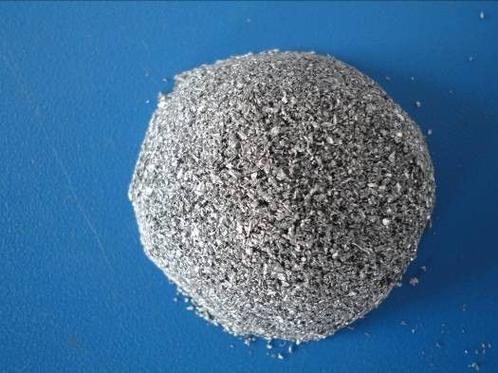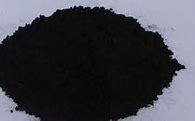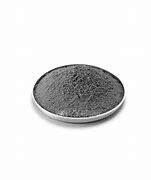Cobalt-based 3D printing powders are specialized metal powders designed for advanced additive manufacturing processes, particularly Direct Metal Laser Sintering (DMLS) and Binder Jetting. These powders are primarily composed of cobalt, mixed with chromium, tungsten, and sometimes nickel or molybdenum, forming cobalt-chromium (CoCr) alloys. Known for their excellent biocompatibility, high wear resistance, and corrosion resistance, cobalt-based powders are prominently used in applications where these properties are crucial.
Biocompatibility: Cobalt-chromium alloys are highly biocompatible, making them suitable for medical implants and dental prosthetics.
High Wear Resistance: The combination of cobalt with chromium and tungsten provides excellent wear resistance, ideal for parts subject to friction or repetitive stress.
Corrosion Resistance: Cobalt-based alloys demonstrate high resistance to corrosion, making them suitable for use in harsh environments.
Strength and Toughness: These alloys offer a balance of high strength and toughness, ensuring durability under demanding conditions.
Precision and Complexity: 3D printing with cobalt-based powders allows for the creation of highly complex geometries and precise parts, beneficial for customized medical solutions.

(INONE WXL-120 SLM printing titanium, cobalt chrome, stainless steel metal powder dental laboratory metal 3d printer)
The INONE WXL-120 SLM printing technology typically uses titanium, cobalt chrome, and stainless steel metal powders as the primary materials for 3D printing. These materials have unique properties that make them well-suited for creating medical devices and other high-quality parts. Here are some of the key parameters that can affect the performance of an INONE WXL-120 SLM printer: 1. Material specifications: The type of material being printed will determine the type of finish and durability it will provide. For example, titanium is strong and corrosion-resistant, while cobalt chrome is lightweight and easy to work with. 2. Print temperature: The temperature at which the powder is heated during the melting process can greatly impact the quality and strength of the final product. Generally, the higher the print temperature, the stronger the final part will be. 3. Layer thickness: The layer thickness of the powder bed will affect the resolution and overall size of the printed object. Thinner layers will result in larger objects and more intricate designs, while thicker layers will create smaller and simpler parts. 4..print speed: The print speed will depend on various factors such as powder feed rate, extruder pressure, and temperature control. An optimal print speed will ensure consistent quality and fast production time. Overall, these parameters can all be optimized through careful experimentation and fine-tuning to achieve the best possible results in your medical device or other application.

(INONE WXL-120 SLM printing titanium, cobalt chrome, stainless steel metal powder dental laboratory metal 3d printer)
Medical Implants: Hip and knee replacements, spinal implants, and maxillofacial implants benefit from the biocompatibility and durability of cobalt-chromium alloys.
Dental Prosthetics: Crowns, bridges, and frameworks for removable partial dentures leverage cobalt-based powders for their strength and aesthetics.
Aerospace: Components requiring high wear resistance and durability in aircraft engines and turbines can be fabricated using cobalt-based alloys.
Tooling and Dies: Due to their wear resistance, cobalt-based powders are used for manufacturing complex tooling and injection molding dies.
High-Temperature Applications: Components exposed to high temperatures, such as those in the energy sector or automotive industry, can benefit from the heat resistance of these alloys.
Company Profile
Kmpass is a trusted global chemical material supplier & manufacturer with over 12-year-experience in providing super high-quality 3D printing powder and relative products.
The company has a professional technical department and Quality Supervision Department, a well-equipped laboratory, and equipped with advanced testing equipment and after-sales customer service center.
If you are looking for high-quality 3D printing materials and relative products, please feel free to contact us or click on the needed products to send an inquiry.
Payment Methods
L/C, T/T, Western Union, Paypal, Credit Card etc.
Shipment
It could be shipped by sea, by air, or by reveal ASAP as soon as repayment receipt.
Q: Is INONE WXL-120 SLM printing titanium, cobalt chrome, stainless steel metal powder dental laboratory metal 3d printer suitable for long-term implantation in the human body? A: Yes, cobalt-chromium alloys are widely accepted and used for long-term implants due to their excellent biocompatibility and durability.
Q: How does the cost of INONE WXL-120 SLM printing titanium, cobalt chrome, stainless steel metal powder dental laboratory metal 3d printer compare to traditional manufacturing methods for medical implants? A: While initial setup costs can be high, 3D printing allows for customization and reduced waste, potentially offsetting costs over traditional manufacturing for complex or low-volume production runs.
Q: Is INONE WXL-120 SLM printing titanium, cobalt chrome, stainless steel metal powder dental laboratory metal 3d printer difficult to work with compared to other metal powders? A: Cobalt-based powders can be challenging due to their high melting points and specific sintering requirements, necessitating careful process control and experienced operators.
Q: Can cobalt-based 3D printed parts be post-processed for improved surface finish? A: Yes, common post-processing steps like machining, polishing, and surface treatments can be applied to enhance the finish and meet specific application requirements.

(INONE WXL-120 SLM printing titanium, cobalt chrome, stainless steel metal powder dental laboratory metal 3d printer)



